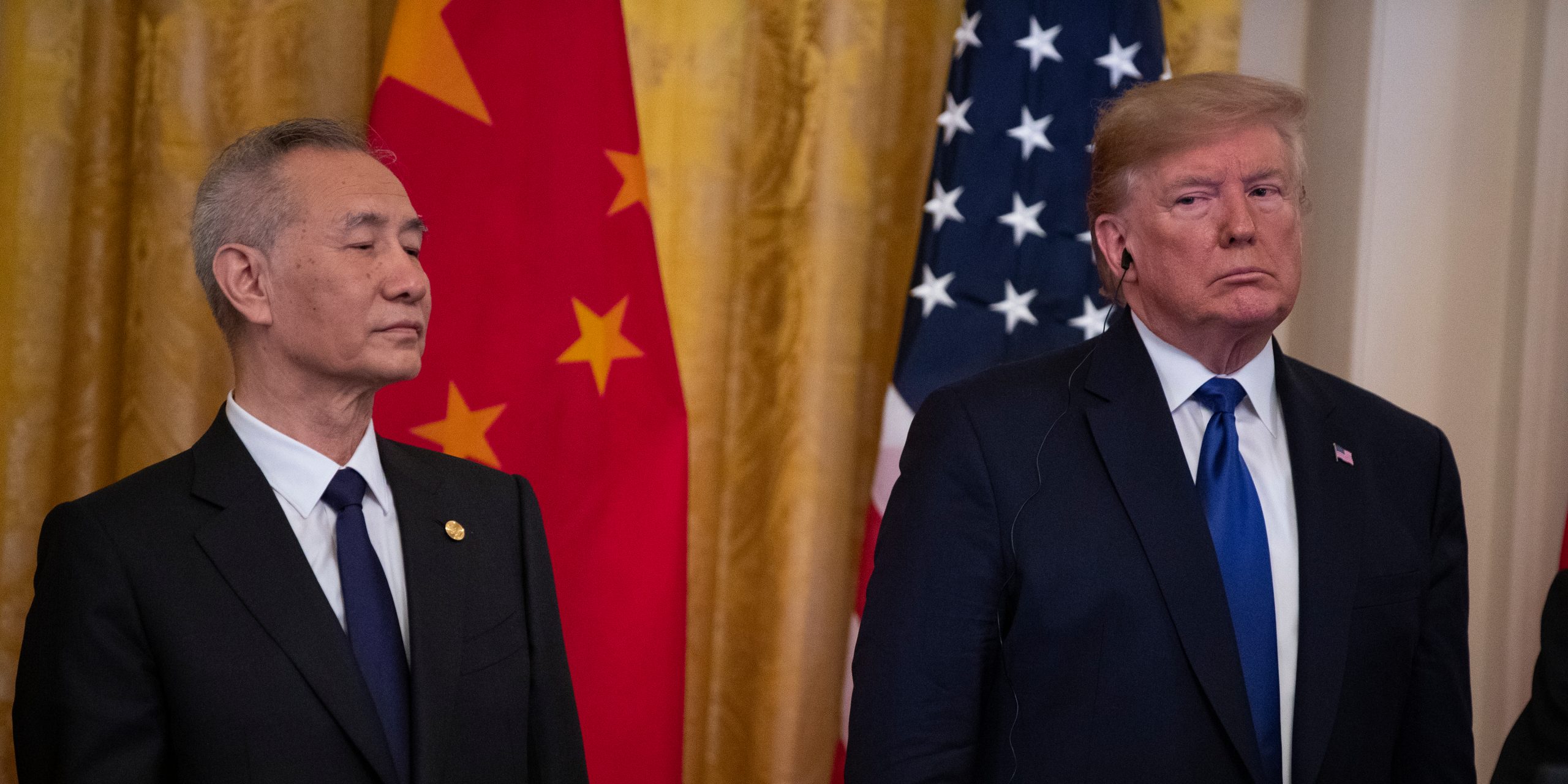- The US could keep tariffs on thousands of imports from China even if the two sides are able to forge a more comprehensive trade agreement, Treasury Secretary Steve Mnuchin said Tuesday.
- The comments came just days after President Donald Trump said that all tariffs would be removed if a phase-two deal is completed.
- While fresh trade negotiations are expected to begin soon, Trump has said he would prefer to wait until after the November election to finalize another agreement.
- Visit Business Insider’s homepage here.
The US could keep tariffs on thousands of imports from China even if the two sides are able to forge a more comprehensive trade agreement, Treasury Secretary Steven Mnuchin said Tuesday.
In an interview with The Wall Street Journal, Mnuchin said that a so-called phase-two deal may not be a “big bang” that lifts tariffs in a nearly-two year economic dispute between the largest economies.
“We may do 2A and some of the tariffs come off,” Mnuchin told the Journal on the sidelines of the World Economic Forum in Davos. “We can do this sequentially along the way.”
The US and China signed a phase-one agreement to ease tensions on Wednesday, paving the way for another stage of trade negotiations. The truce lowered rates on a portion of Chinese tariffs but left them on $360 billion worth of Chinese products.
The comments came just days after President Donald Trump said that all tariffs would be removed if a phase-two deal is completed.
"I will agree to take those tariffs off, if we are able to do phase two … I'm leaving them on, because otherwise we have no cards to negotiate with," Trump said of tariffs at a signing ceremony for the deal on Wednesday. "But they will all come off as soon as we finish phase two."
Other administration officials including US Trade Representative Robert Lighthizer have said that no agreement has been reached on potential tariff rollbacks.
Under the phase-one deal, China agreed to purchase more American products and make adjustments to the way its economy is managed. It left out some of the most complex issues the Trump administration has sought to address in the dispute, including industrial subsidies in China.
While fresh trade negotiations are expected to begin soon, Trump has said he would prefer to wait until after the November election to finalize another agreement.

